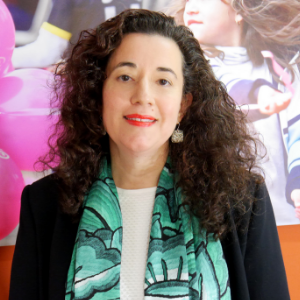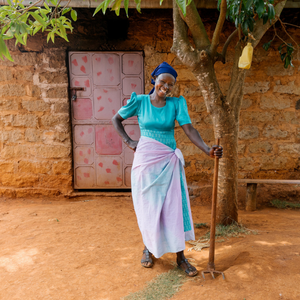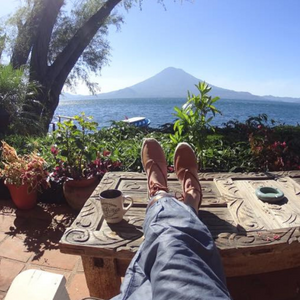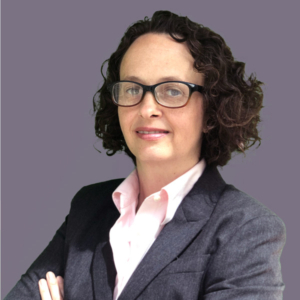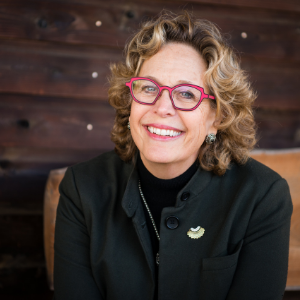Mariella Greco: Gender and International Development Advisor
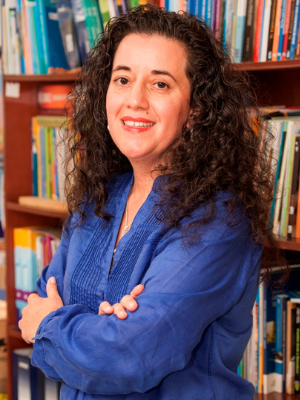 “In difficult moments in the development world, I draw on what I learned from the intensity of the trading room,” says Mariella Greco, a global leader in gender, development and finance. “The motivators are different, but those same skills make me a better leader in the not-for-profit sector.”
“In difficult moments in the development world, I draw on what I learned from the intensity of the trading room,” says Mariella Greco, a global leader in gender, development and finance. “The motivators are different, but those same skills make me a better leader in the not-for-profit sector.”
Heeding the Call
Having majored in international relations in university, Greco was magnetized to international development.
But after a short assignment at Canada’s Permanent Mission to the UN in 1990, she put her call to international service on hold and accepted a domestic position with the Royal Bank of Canada back in Windsor, Ontario, her hometown, staying near her mother during her parent’s difficult divorce.
When family matters settled, she left Windsor to pivot back to international affairs, but in banking. She succeeded in a tough dealer training program that she landed as the only woman on the Canada desk. Nicknamed “Stella”—and with the occasional “what-a-guy” pat on the back—she learned to hold her own as one of very few women dealers in the bank’s main trading room.
But Greco still felt the pull to international development and began volunteering for Plan International in Canada.
When she began at the Royal Bank, she promised herself (in writing, along with other life goals she recorded in a book) that she would revisit her path in time: within 5 years, she would either try international development or stay the course in finance.
“My head was like don’t be stupid,” recalls Greco, “but my heart was still feeling this call.”
Giving up a hard-won position in the global headquarters of Canada’s biggest bank for an NGO job with a 50% pay cut was both risky and daunting.
“So for a year I went home everyday and asked myself, ’Is this a day where I feel I want to go, stay or am I neutral?’ I literally logged it,” she explains. “Like the markets, my feelings about taking the leap had highs and lows. I tried to find balance with a daily risk-reward analysis about what I wanted in life. At the end of the year, I added it all up, and bottom line—there were more days where my gut said GO.”
Greco heeded the math and left for a “planned” two year break from banking that became two decades working in international development, while living in five countries, traveling to 50 countries and gaining proficiency in several languages, before returning to Canada with her family in 2018.
Transferable Leadership Lessons
Calm Under Fire
On the trading floor, Greco learned that as important as being a good winner was, so was being a good loser.
The EVP who interviewed her for the dealer job asked her, “Can you speak your mind to your boss, and give your opinion knowing his is different, even if he is yelling because of market volatility? Can you speak up then, too?” She said yes, and she did because it was the expectation.
“They wanted to know if you can stand the heat and carry on, even when stress is overwhelming and you’re losing money,” says Greco. “Loyalty to the team meant sharing differing opinions, and it also meant closing ranks when final decisions were taken.”
This insight and learning to stand the heat helped her to be a strong leader in many challenging situations, and to do so while also caring for her team’s wellbeing (physical, mental and socio-emotional), such as in humanitarian crises.
“The most rewarding experiences are sometimes the hardest ones,” says Greco, such as the Category 5 hurricane response she led in Nicaragua (earning her one of her official Medals of Honor).
Also, ensuring child safeguarding and gender equality were part of each and every Plan staff member’s performance objectives was rewarding too, because it positively impacted both the quality of their work and the personal lives of her team.
Speaking Truth to Power and Holding Midterm Vision
Honed in the trading room, several bosses have told Greco that her strong voice is her “superpower”.
When pregnant with her first daughter, Greco learned that expatriate women in her organization didn’t receive maternity leave, even as she was unexpectedly promoted shortly after giving birth. As her contract was subject to U.S. labor laws, she was limited to six weeks of “disability leave” after birth, because maternity leave might be interpreted as discriminatory against men, creating liability risk for the organization.
“I was shocked that giving birth was deemed a disability in an organization dedicated to children and gender,” shares Greco.
Not only did that seem wrong, but also that it was only 6 weeks of leave, especially when compared to the year that mothers may take off in Canada.
Greco began a five year internal campaign that gave birth to a maternity leave policy that was more coherent with the organization’s mandate. In doing so, she helped remove barriers for younger women aspiring to both leadership and motherhood.
“Some things you can take a short-term view on, but for other things you need to play the long game, even if you can’t see around the corner,” Greco reflects. “Be willing to also sow seeds and nurture change for positive impacts that may only blossom after you are long gone.”
Greco values learning to speak truth to power early in life. Reflecting on a “Me Too” incident she had early in her career, Greco recalls the unconditional support of her male bosses when she reported being harassed by a senior executive, who was also way over their heads.
“I had stood my ground with him and let my bosses know the next day, but I also asked them to refrain from intervening unless he bothered me again,” remembers Greco. “They were so outraged that instead of doing what I asked, they made it known to their leadership that they had my back.”
When the “Me Too” movement gained prominence, she realized how rare their reactions were. So she wrote her ex-bosses and asked them to sit their daughters down and tell them that story “so they know how stand-up their dads were and so they know the standard of support they should expect if it happens to them.”
“That whole experience (good and bad),” reflects Greco, “helped me better support others who faced this.”
Multidirectional Career Moves
Greco made yet another non-traditional career move in 2019, pivoting towards government this time.
“People too often think their path must be up, up, up, like that’s the only direction worth going” she observes. “Had I been hostage to that mentality, I would have missed an amazing journey. I feel the same way about the journey ahead”.
She likens working in government to learning about a whole new world: “It is a bit like being paid to attend a university program, continuing to work and add value, but influencing for change more subtly.”
Empowering Girls to Lead
Greco credits her successes—whether as a trainee or as a Country Director—to both fortune and her willingness to try.
In Plan, Greco was steadfast in her efforts to advance gender equality and promote the leadership potential of girls. Ahead of Plan’s #GirlsTakeover on International Day of the Girl on October 11th, Paraguayan colleagues warned that national leaders would never cede their positions to girls, given entrenched gender attitudes and the political environment.
Greco decided she would try, anyway, at least with one Minister. When she phoned him, he quickly agreed. So she called another, and then another, planning to stop when one Minister said ‘no’. None did.
That year, Paraguay’s Cabinet, Senate, Congress, Supreme Court and even the Central Bank were led by girls. It catalyzed the President to create a Council of Girl Minsters, inspired Paraguayan girls to dream bigger dreams and it helped chip away at arthritic gender stereotypes. The next year, ministers were asking her to be involved.
“Without that risk tolerance built into me, whether inherent or strengthened in the trading room, I probably wouldn’t have asked” says Greco. “Don’t squander your opportunities out of fear of a ‘no’. Try. ”
Which Organizations Will Dare?
Greco discusses gender and COVID-19 impacts with her daughters, even the 140,000 U.S. job losses in December 2020, in which women netted 156,000 losses vs. the 16,000 net jobs gained among men.
Women fill so many jobs deemed “essential”—yet are disproportionately bearing the economic brunt of the pandemic, whether in job losses, being underpaid or exiting the workforce for unpaid family responsibilities. Paying wages commensurate with essential work and implementing measures that close the wage gap could slow the loss of women from the labor force, but Greco feels the solution space of gender impacts needs more innovate thinking for systemic change.
“Incremental change is safe but too slow,” observes Greco. “Taking some risks to accelerate long term gains is long overdue.”
Basics like paid maternity leave and flexible arrangements for family responsibilities (the brunt of which continue to fall to women) are critical, but additional measures that fast-track women back onto their career should help them regain momentum too.
When faced with women exiting the workforce (be it a result of the pandemic, family responsibilities or wage gap disincentives), do employers just lament and accept it, or do they step up and flex what’s possible to keep their talent? Can organizational playbooks and rules historically written by men be modernized through a more balanced lens?
Greco looks to organizations with deep pockets to pilot such changes that matter, lean into some risks and help pave the way for others.
The True Pipeline
After witnessing so many empowered girls inspiringly take to leadership, and the impact on their personal sense of agency, Greco reframes the pipeline when it comes to future change.
“Younger people are more powerful, engaging and influential early on,” she says. “It’s not only about a line of new and energetic ‘replacement’ candidates to fulfill status quo positions, but rather an idea stream with young and unencumbered perspectives that will evolve our vision and how we do things.”
“Avoid the typical training that ‘indoctrinates’ young talent in how things are done, because if we listen better, we just might realize that they have the most forward looking solutions,” she advises. “Consider stewarding and facilitating emerging talent and ideas. That’s what’s going to tip it, for those willing to ask—to listen to differing opinions and to courageously take calculated risks.”
By Aimee Hansen

